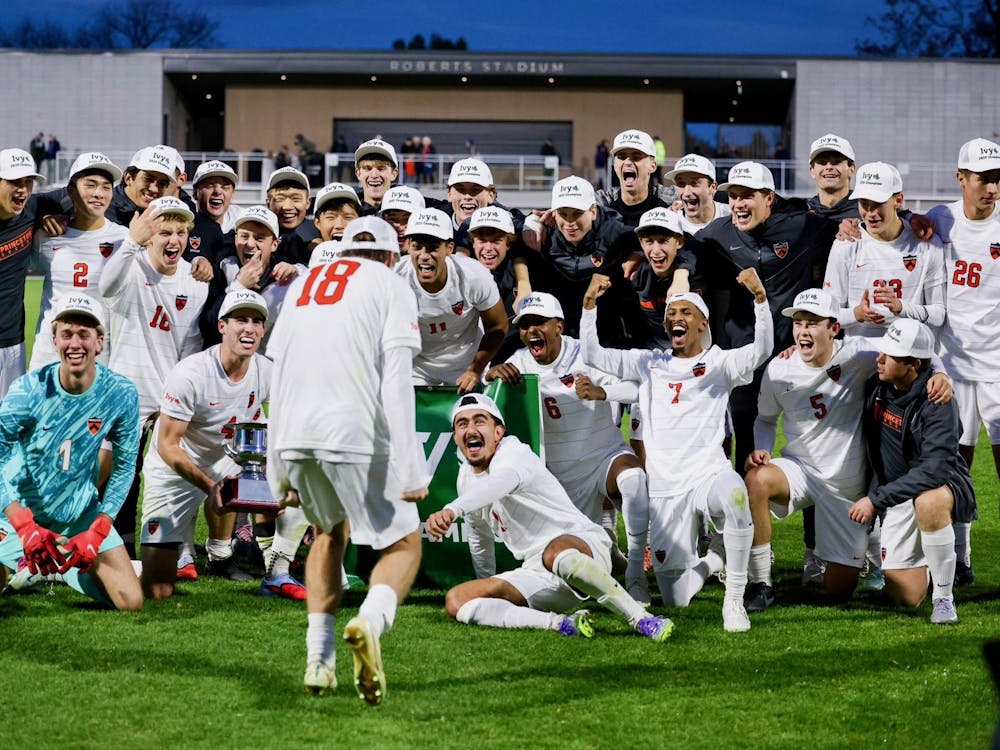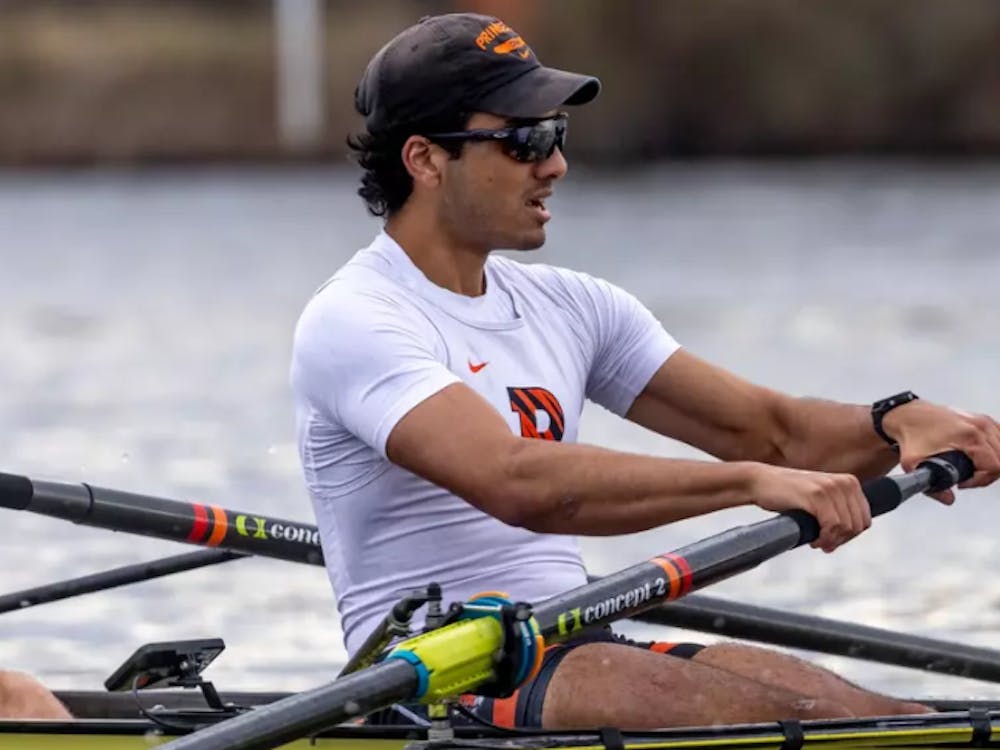On the 69th anniversary of one of the bleakest days in American history, the talk within Robertson Hall was not about Pearl Harbor or international relations, but about sports.
Princeton hosted its second annual Sports Symposium last Friday, bringing together world-renowned leaders from the coaching, management and business sectors of the sports world to provide the University community with a glimpse behind the scenes of this industry.
The elite group of panelists for the event included, among many others, Athletics Director Gary Walters '67, Patriot League Executive Director Carolyn Femovich, Southeastern Conference Commissioner Mike Slive and principal and founding partner of Velocity Sports and Entertainment Mike Reisman.
The attraction of the sports industry over other professional career paths was one of the main topics for the symposium, which pushed the question of "for love or for money" to the forefront of the discussion.
"The word 'passion' has been thrown around a lot today," University of California Athletic Director Sandy Barbour said. "If I leave you with nothing else, it's going to be that word. For me, it was just an 'ah ha' moment one day. I made the move and never looked back."
For all of the participants, part of that passion was the drive to positively affect the lives of their players. No matter where the discussion about college sports started, it always ended up on the same point: the athletes. Northeastern University Athletic Director Peter Roby's account of one recruit he had while head coach at Harvard typifies this sentiment.
"One year I recruited talented twins from a single-parent home in Connecticut," Roby said. "One brother started being a knucklehead, so I cut him. Despite that stigma in his college life, that young man graduated, went to med school and is now Dr. Ian Smith, distinguished medical and diet expert on VH1's 'Celebrity Fit Club' ... It's good to know that my actions affected him in a positive way, that tough choices and stringent actions paid off in the end."
Slive, the SEC commissioner, was particularly adamant in noting that this ideal also holds true in arguably the most competitive conference of college athletics.
"We won eight national championships out of 20 sports last year," Slive said. "In such a league, it's hard to peel back the money, the BCS, the hype and the statistics and see the core principles that the entire system is built upon. In the end, that system centers around the kids. My job is to make sure we never lose sight of the mission, and that is to ensure that the student-athletes take full advantage of all the opportunities we provide."
Another focus of the symposium was the shrinking gender gap in the sports industry, both on the playing field and in the executive offices. This year marks the 35th anniversary of the Title IX equal education and opportunity act, and the leading females in sports management were flooded with questions on the outlook for gender equality in sports.
"As much as we've closed the gap, we're still far from equity between men and women athletics," Femovich said. "The real downside of Title IX comes from the professional side. Men can coach teams of both genders, but the only place for women to coach is on the women's side. We need to see more female role models as coaches to spur on future generations."
Despite the talk about passion and the love for sports, though, the last line in any industry is still the bottom line. The panel of well-known leaders in the sports industry's financial offices drew by far the largest crowd, and the panelists were asked many questions about the prospects for the sports industry in the domestic and international markets.

"Sports is no different from any other business. The companies need to tailor their marketing strategies to the social demographics of a constantly changing world," IMG Sports and Entertainment President George Pyne said.
Citing the Memphis Grizzlies and New Orleans Hornets as examples of the faltering domestic demand for certain athletic venues, Reisman presented international marketing as an inevitability for the future of the American sports industry.
"We need to export our strong points such as football, but in a way that the rest of the world can accept and a way that is profitable," Reisman said. "We've had success with basketball and China, but there's a lot more that could be accomplished."
Another panelist agreed that sports had a constantly changing potential for expansion.
"We tried to export football on the international market," Audible President Bob Reif '89 said. "We had NFL Europe, and it went on for 17 years, but now it's over. But that doesn't mean we quit. Now we're just going to try to market it another way. We have the products; we have the consumers — now we just have to find some way to link the two together."
As the panel showed, for those sports-oriented members of the Princeton community, vast opportunities await.







